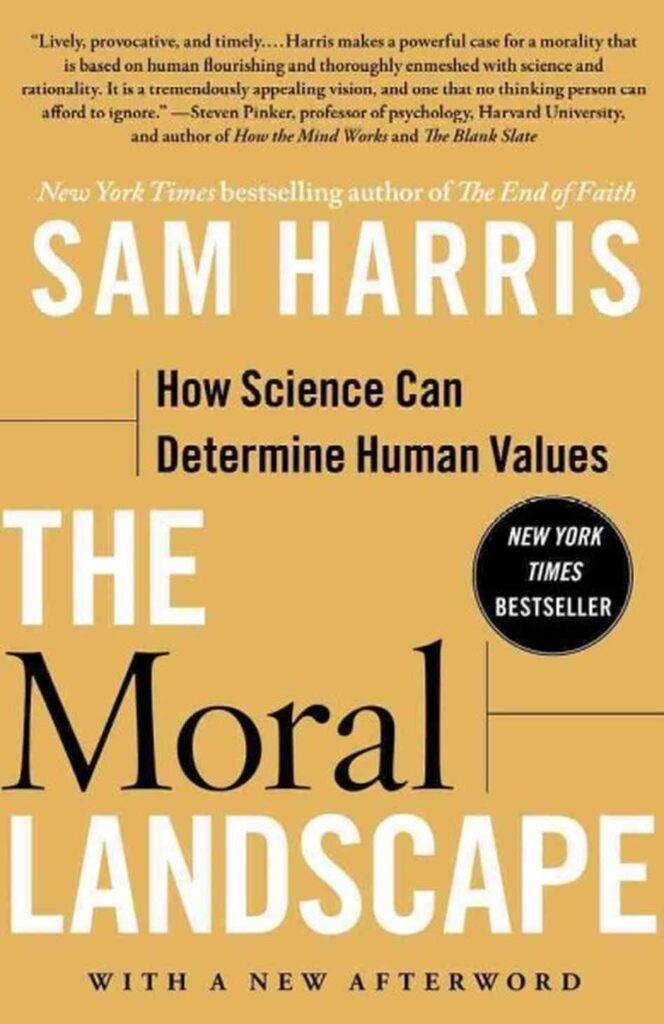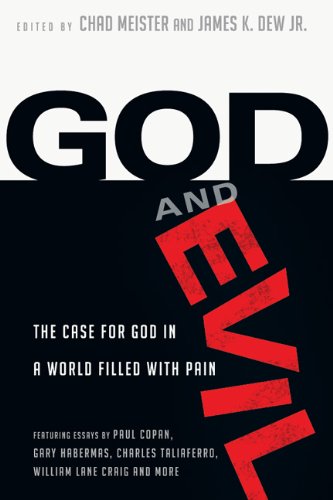Can a man be good without believing in or worshiping God? Yes. Of course. There are many atheists who are better moral people than some theists. But that is not the issue. It is much deeper and more profound.”Can a man be good without God?” is the question to ask, not “Can we be good without believing in God?”
We need a rich moral soil for any true objective morality. And a rich moral soil cannot exist unless you have a moral gardener to plant it in there in the first place. This is beyond mere belief.
One of my dear atheist colleagues points out to me that recent studies in biology have established that much of what we think is moral is rooted in our biological history. Thus we have no need of an objective moral judge, God. Really?
Consider, even if it can be established that there is biological link to morality that does not imply moral obligation. In other words, it does not make us morally obligated to follow what we are biologically inclined to.
Some are born with a propensity to be more susceptible to alcohol than others. Does that then make it obligatory for them to get drunk? Of course not. In fact it makes it morally obligatory for them to watch themselves more so, especially when they are about to drive. Some are born with a more susceptibility to violence than others. Does that make it “OK” for them to be violent to others? The same thing applies to sexual preferences or any other disposition. All these require an independent moral standard to gauge them.
The Apostle Paul, in the New Testament book of Romans talked about us all being innately born with a Moral Compass if you will. He called it the law that is “written on the heart”
He wrote:
14 For when Gentiles, who do not have the law, by nature do what the law requires, they are a law to themselves, even though they do not have the law. 15 They show that the work of the law is written on their hearts, while their conscience also bears witness, and their conflicting thoughts accuse or even excuse them
Source: Romans 1: 12-15.
This is called in ethical theory the Moral Law or Natural Law tradition that supports that thesis.
Thomas Aquinas, Thomas Hobbes, John Locke, United States Declaration of Independence and the Constitution of the United States, as well as in the Declaration of the Rights of Man and of the Citizen all presuppose Natural Law.
So can a man be good without believing in God? Yes.
But can a man be good without God? And the answer to that is no. No because when you eliminate the standard of Goodness itself, you eliminate objective goodness too.
See this brilliant video on the issue.
Consider, when we have two societies or very intelligent people who disagree on an ethical course of action, we would need an independent or objective standard (that is outside of human opinions or passions) to determine which one of them is in fact right. If we do not have that independent standard, then we are stuck with good and evil being arbitrary at worst or contrived at best.
What do those who disagree have to say? What about Sam Harris and his colleagues who argue that objective morality can exist without an external reference point or judge?
 That is the main problem with Sam Harris’s theories–and many others who walked that path–is that they assumes that Human Wellbeing is the highest standard, but he assumes that based his uses rationality or logic (which cannot exist without an objective law that makes them work, see my post on this) .
That is the main problem with Sam Harris’s theories–and many others who walked that path–is that they assumes that Human Wellbeing is the highest standard, but he assumes that based his uses rationality or logic (which cannot exist without an objective law that makes them work, see my post on this) .
Harris assumes we can arrive at an ought (what we should do) from an is, (how the world is now), which is a logical fallacy.
Furthermore, and building on this, even if it is possible to arrive at an ought from an is, which Harris claims can be done, it does not obligate me to follow that ought any more than a hammer should not hit a nail or a tiger tear apart a mouse for fun.
There are no moral obligations that come from merely acknowledging a right or a duty. In effect, when we remove the absolute from the discussion, namely God, we will have ethics without any biding force, or in the modern vernacular, ethics without teeth.
A philosopher in his ivory tower who demands us all to be moral and “good” without a higher authority behind his words, is like an old toothless lion that roars at a pack of zebras demanding they become his dinner. He is roaring in a very sophisticated way from his ivory tower, but has no effect in the real world of sex, taxes, war crimes, trafficking, and breaking of the law in the dark.
Objective ethics without God is morality without authority and without obligation — even historically significant atheists agree with this hypothesis:
1. Jean-Paul Sartre : “It [is] very distressing that God does not exist, because all possibility of finding values in a heaven of ideas disappears along with Him.”
2. Friedrich Nietzsche : “There are altogether no moral facts”; indeed, morality “has truth only if God is the truth—it stands or falls with faith in God.”
3. Bertrand Russell : rejected moral realism and retained the depressing view that humanity with all its achievements is nothing “but the outcome of accidental collocations of atoms”; so we must safely build our lives on “the firm foundation of unyielding despair.”
4. J. L. Mackie : “Moral properties constitute so odd a cluster of properties and relations that they are most unlikely to have arisen in the ordinary course of events without an all-powerful god to create them.”
SOURCE : Paul Copan, “Ethics Needs God” in Debating Christian Theism, ed. By Moreland, Meister and Sweis (Oxford University Press, 2013), 86
With God as the foundation, one has all the moral authority and moral obligations he needs.
Good and upright is the LORD; therefore he instructs sinners in his ways. 9 He guides the humble in what is right and teaches them his way. 10 All the ways of the LORD are loving and faithful for those who keep the demands of his covenant.
We just have to make sure we are following the right God.
Furthermore, not everything that is good and right is what we can arrive at with mere rationality alone. GK Chesterton was right, “There must always be a rich moral soil for any great aesthetic growth.” SOURCE: G. K. Chesterton, The Defendant. Second edition. London: R. Brimley Johnson, 1902.
And a rich moral soil cannot exist unless you have a rich moral gardener to plant it in there in the first place.
What do you think?




An interesting read Dr Sweis but I wonder if you would expand upon a few points?
I am struggling to see what practical assistance an external authority might provide to the two well informed people, in possession of all the facts, in their attempt to determine what they are obligated to do. Is it not the case that even within one faith tradition, where it’s adherents agree upon the existence of such an external authority, two such people may consult the same ‘authorative ‘ text, and still arrive at different views re. their obligations?
Interesting inclusion of ‘taxes’ in your list of some of the difficulties that beset us in the ‘real’ world! Did not the early church share their resources amongst each other and the poor– following the teachings of the man they were attempting to follow–and are taxes , at least in part, not also an attempt to provide for those whom are poor?
Pauline
Dr. Sweis I have some question,
I agree that “a rich moral soil cannot exist unless you have a rich moral gardener to plant it in there in the first place”. But the question become’s who is the garden ? And what does the gardener believe to be moral ? Understanding one’s moral compass would be the ubiquity of morality in the event the focus of moral interest is shared with the same definition of morality. If it is not a shared understanding, can this different point of view contribute to what we know as evil ? Besides there are some people who are depicted to be evil but believe they are morally correct like terrorist right ?
I hope this comment does not cultivate the topic, I felt compelled to share my curiosity’s.
Delia Mingle
Delia
I believe this gardner must be all-powerful and all good to be one who can create a moral system for all the universe. Who else but God fits that description? Also, yes people can misuse their positions (political or religious) to abuse their power. But that does make the thesis that “God is necessary for morality” any less a reasonable proposition?
Dr. Sweis,
This was an interesting link, thanks for sharing. The article and video help solidify the intended message of the author. I was particularly drawn to the rich soil and gardener. This puts me in remembrance of a scripture that I have heard over the years in church which is Train up a child in the way he should go, And when he is old he will not depart from it. (Proverbs 22:6). My position is the parents are the gardeners and they have to plant the seeds of righteousness. When you know better you do better! I do not expect for someone to do what is morally right and they do not have an idea. The world has become a cold place and the inner voice that speaks is often ignored. I have learned that God is a gentlemen, he will not force you to do anything; this is your free will. That statement alone is why it is imperative for seeds of love, peace, respect, honor, etc…,to be planted. Please be mindful, the harvest sown is greater than the seed planted. That being said, if nothing else is remembered or honored, the following statement should make you think before actions are executed.
Galatians 6:7-9King James Version (KJV)
7 Be not deceived; God is not mocked: for whatsoever a man soweth, that shall he also reap.
8 For he that soweth to his flesh shall of the flesh reap corruption; but he that soweth to the Spirit shall of the Spirit reap life everlasting.
9 And let us not be weary in well doing: for in due season we shall reap, if we faint not.
Shawn
Thanks for your insights Psalms Brown!
I believe that it is true that morals had to have been derived from an authoritative moral figure. I believe this because I agree with what Craig said about science- it can only explain what we are not what is wrong with what we are. We couldn’t of come up with the ideas of what is right and wrong to do with out a moral gardener planting the moral seed within us in the first place. I don’t see how science can provide a thorough explanation of how humans acquired the idea of good and evil and what is wrong to do and what is right to do. There had to have been someone who had given us these ideas of the right way to live. We are not just biological machines, we have a spirit within us. Harris couldn’t even give a solid reason why this could in fact not be much less how science could be the sole reason how we aquired the idea of what is good and bad. He just kept talking about how humans care about the health and well being of other humans because it is good for survival. I personally don’t see that as a good explanation because suffering would not keep humanity from surviving. Humanity would still thrive because we are intelligent and able to think ahead. Ultimately that is all we need. If there is no God and good was not really derive from God then there is no reason to be good. In my perspective Harris does not really have a solid moral foundation for how he believes we had obtained our morals. In my opinion the debate comes back to God and how we take from him whether Harris wants to accept that or not. I believe that without God the idea of goodness would not be conceived by humans on their own.
Thanks for your insights Christine
A question, what difference does God make to the question of what is right and wrong anyway?
Khaldoun
Hello Professor Sweis,
First of all, I agree with your argument that the BEST explanation for OBJECTIVE morals is the existence of God. Many people tend to jump to the conclusion that morals were created by humans but that is not the argument made here. The argument being made is focused on objective morals and not subjective ones. Some argue that morals derive from our genetic makeup and others argue nature tells us what is wrong and right. Only because the existence of God seems to be the best fit for the existence of objective morality, it does not imply and prove God’s existence.
Second of all, I want to extend my thoughts by sharing another possibility of who or what can be responsible for morality even if it is not the best explanation. It is kind of an “insane” or “out of this world” argument but here goes: extraterrestrials might have been the ones behind the creation of morality on Earth. I believe in some of the theories of the existence of extraterrestrials so this is why this argument is made. A friend of mine is in the process of reading a novel titled “Caballo de Troya” by Juan Jose Benitez. In the saga, Benitez creates Jesus as the descendant of an extraterrestrial instead of a God. And so what people see and consider as God is really extraterrestrials. Extraterrestrials that are super advance than humans. When my friend shared this book with me, I was awed since I did not expect an author to have the same insane opinion as I.
In addition, another possibility of the origin of objective morality is the human creation of the false God which implies objective morality is really subjective. I am saying that the Bible might be fabricated and is a long fairy-tale with historical context. And God was created in order to bring fear and ease to humans. Fear of being punished by not obeying the commandments, and ease by knowing that God is good and there is heaven after death. Even though I believe in other possibilities on the origin of objective morality, they do not contradict my argument in that the existence of God is the best explanation.
In conclusion, I will use what you said yourself against you and that is: are you “not just making a “God in the gaps” argument that since we cannot explain how morals got here, it must be God!?” Now I will throw this question to myself and defend my argument. I am not making the “god in the gaps” argument, but rather I am using reason. I believe the existence of God is the best explanation for objective morality since God is claimed to be non human (making God’s rulings objective) and is considered to be the creator and ruler of the universe. And if God is the ruler of the universe it must mean God formed morality. Furthermore, even if God & extraterrestrials exist, God’s morals would be superior to the extraterrestrial’s just for the fact that God is the ruler.